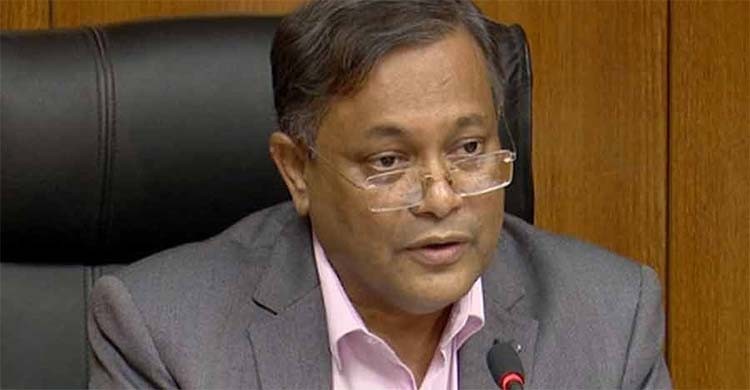Developed countries keen to fund vulnerable countries: Hasan
12 November 2022, 08:19 pm | Updated: 03 April 2025, 07:52 am

Information and Broadcasting Minister Hasan Mahmud has said that developed countries have decided to fund climate-vulnerable countries like Bangladesh under a “loss and damage” programme at the 27th United Nations Climate Change Conference of The Parties, popularly called COP27.
In an exclusive interview with UNB, the Minister, who has joined the conference representing Prime Minister Sheikh Hasina, added that Bangladesh wants a separate fund like the green climate fund to get the money promised by the rich countries.
“Bangladesh is incurring huge losses and damages due to frequent natural disasters like floods and cyclones, which are direct results of climate change. The good news is that the world has recognised these problems of ours. These issues are being widely discussed at this year’s conference, and countries like Denmark and Belgium have promised to provide money to tackle these crises,” Hasan said.
Hasan added that the topic of Climate Finance has become a burning issue at this year’s climate conference.
“The issue of Climate Finance is being debated at COP27, especially by the developed countries. They’re trying to find out who gave $82 billion to whom last year. Despite providing additional funding, rich countries have provided this money as bilateral assistance, which is kind of wrong,” Hasan added.
Replying to a question, Hasan said that the Russia-Ukraine war is standing in the way of saving the planet from climate change.
“The sanctions and counter sanctions which are being imposed on Russia and the Western countries are hurting the people severely. Climate financing is facing great risk due to the Russia-Ukraine war as developed countries are busy financing the war. To protect the people from climate-induced dangers, first we need to stop the war,” said Hasan.
The Minister further said that Bangladesh has demanded the allocation of a separate fund to recover from the billion dollar losses incurred by the country’s water and sanitary systems due to natural disasters.
“At COP27, we’ve presented the issues of rising sea levels, increasing temperatures, salinity, droughts, floods and cyclones as the disasters which are damaging the water and sanitary systems of climate-vulnerable countries like us. About 98 percent of Bangladeshi people are getting clean water, while we’ve also secured complete success in ensuring sanitation for all. Still, we’re facing challenges in these sectors due to climate change,” Hasan said.
Replying to another question, Hasan added that it creates extra burden for poor countries like Bangladesh when the developed countries tell them to reduce the emission of carbon and methane gas from the agricultural sector.
“We need to make our agricultural sector climate tolerant while ensuring food for all. We can’t do anything that hampers the food security of the people,” Hasan concluded.





















